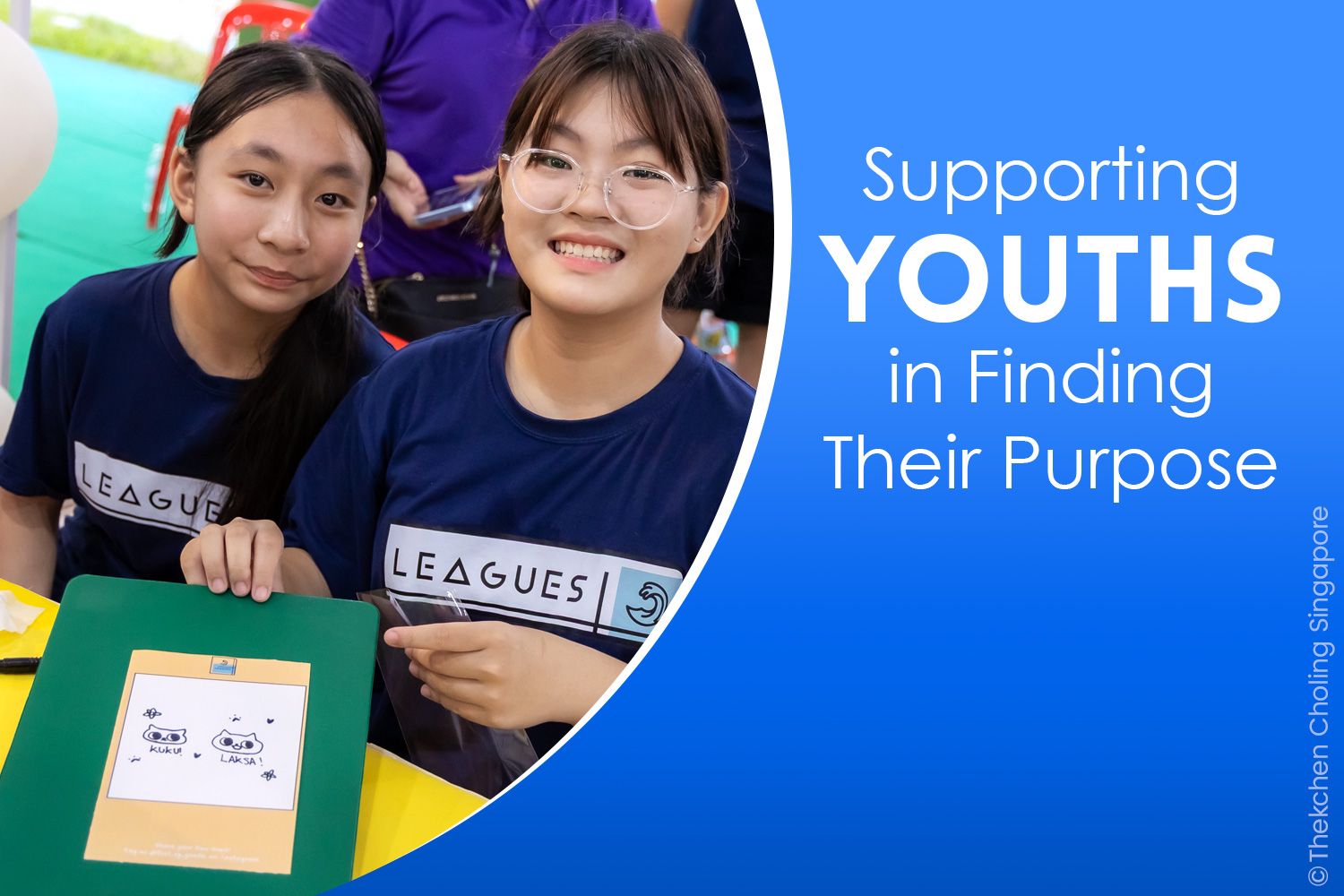Supporting Youths in Finding Their Purpose

Purpose. Such a profound and captivating concept.
Thinking back, how many of us truly understood our purpose from a young age?
Most of us didn’t, and some of us still don’t. And for today’s youth—growing up in a world filled with instant likes, viral fame, and rapidly changing trends—the question “What’s my purpose?” can feel pressurising and overwhelming.
In this age of instant gratification, we’re surrounded by stories of young people who seem to skyrocket to success overnight. Social media spreads the idea that success comes easily. We see young athletes becoming millionaires, teens starting businesses from their bedrooms, and activists gaining worldwide attention before they turn twenty. It can make purpose seem like something you either stumble into or miss entirely.
But purpose isn’t a lightning strike. It’s a journey that unfolds through reflection, curiosity, connection, and courage.
Why Purpose Matters
We often hear that it’s important to have a purpose in life. But why?
Because purpose gives direction, it acts like a compass during the confusing, exciting, and sometimes painful transition from adolescence to adulthood. According to Stanford professor William Damon, author of The Path to Purpose, young people with a sense of purpose are more resilient, motivated, and fulfilled. They’re not just chasing grades or popularity—they’re anchored by something deeper.
If adults can feel lost today, many young people feel it even more. In a world that values achievement and rarely allows time for reflection, it’s easy to confuse success with purpose.
Buddhism reminds us that real contentment doesn’t come from chasing external validation but from understanding the heart’s deeper aspirations. Our purpose doesn’t have to be grand or loud—it just needs to be authentic.
Passion vs Purpose: What’s the Difference?
“Follow your passion,” they say. Is passion the same as purpose?
Many people confuse the two. Passion is about what excites you; purpose is about what sustains you. Passion can burn bright and fade quickly, changing with our life's seasons. However, purpose is the steady flame that endures.
From a Buddhist perspective, purpose is rooted in right intention and right livelihood, two aspects of the Noble Eightfold Path. Right intention means considering why we act: are we being kind, compassionate, and clear? Right livelihood means choosing work that does not harm others and brings benefit to individuals, society, and the world.
When young people align their interests with these values, they move from fleeting passion to lasting purpose.
Obstacles on the Path to Finding Purpose
So why is purpose so hard to find?
According to William Damon, one major reason is a “culture of short horizons.” We increasingly value speed over depth. Reality shows and social media celebrate fast fame and instant results. This obsession with shortcuts discourages people from taking the time to reflect, an essential part of finding purpose.
Then there’s the fear of failure. Many youths feel paralysed by the pressure to get it right the first time, whether choosing the perfect course, career path, or cause. There’s little room to explore or make mistakes when everything feels so high-stakes.
And there’s over-scheduling and over-indulgence. Today’s teens are so busy with school, tuition, extracurricular activities, and screen time that they hardly have time to reflect and grow. Without proper guidance and time for themselves, it’s very hard to hear that quiet voice inside that guides them toward their purpose.
How Parents Can Support Their Child’s Journey
As parents, we may feel compelled—or well-meaning enough—to try to choose our child’s purpose. But the truth is, we cannot. What we can do is create an environment where purpose can grow.
A young person’s first and most important source of purpose is usually their family. However, it's not about parents giving answers easily. Instead, it's about being there for their children, offering support and understanding. This means helping them grow, not trying to control what happens, but encouraging them and building trust.
This means practising the art of deep listening—not lecturing or advising, but asking open-hearted questions and giving space for answers to emerge. It means being open to what excites your child, even if their interest seems unfamiliar or unorthodox. And it means sharing your own story—how you’ve wrestled with your purpose, work, and values.
Buddhism teaches us to give our children both roots and wings. Roots provide stability and values. Wings give them the confidence to explore. Greta Thunberg, a well-known youth climate activist, didn’t start with big rallies or speeches at the UN. She began by sitting alone in front of the Swedish Parliament. Her parents didn’t push her into the spotlight; they were initially unsure. But they respected her determination and supported her, not by taking charge, but by trusting her voice and encouraging her to be well-prepared for the road ahead.
That’s the power of purpose—when personal belief is met with outer trust.
The Role of Community
While parents play a pivotal role in fanning the flame of purpose, having a community beyond the family helps keep that flame alive through shared experiences, encouragement, and belonging.
In Buddhism, the sangha—or spiritual community—is one of the Three Jewels of refuge. It reminds us that we don’t grow in isolation. We grow when seen, supported, and stretched by those walking the path alongside us.
The Youth League at Thekchen Choling offers a supportive environment for young people. Through activities like hiking, volunteering, and friendship, they develop important life skills such as teamwork, communication, emotional strength, and self-awareness.
For example, a recent round of badminton sessions in May was more than just about playing games. The youths learned the importance of supporting each other, making plans, and sticking to them. They discovered how to lose gracefully and win humbly. These experiences highlight an important truth: we don’t need to know our purpose immediately. We just need to show up—with heart, determination, and openness.
When young people feel safe to share their thoughts, explore new ideas, and grow with support, they slowly begin to find their purpose.

